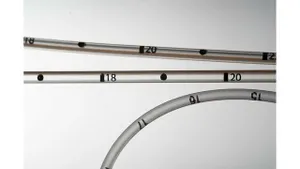Nestlé specifies Tetra Pak’s bio-based plastic closures for milk brands
The Brazlian business of Brand owner Nestlé announced it has specified the closures for some of its leading milk brands in the country. Last year carton packaging giant Tetra Pak announced it had a stable supply of bio-based polyethylene from Braskem, which it would use to mold closures for its packaging. Nestlé is the first customer to be publicly named, and Tetra Pak claims this is the first use of plant-based polyethylene in carton packaging.
August 1, 2011
Nestlé Brazil begins using the new closures this month for its Ninho, Ninho Levinho, Ninho Low Lactose and Molico brands. The Tetra Brik aseptic packages will be sealed with the closures molded from polyethylene whose ethylene Braskem derives from sugar cane. We have covered this development extensively; here a link some of our articles on this bioplastic. Nestlé has been operating in Brazil for 90 years and is the country's leading food company.
As we reported in this article in December 2009, starting this year Braskem agreed to supply Tetra Pak with 5000 tonnes per year of its "green" HDPE, which is a bit more than 5% of Tetra Pak's annual HDPE requirement. In answer to questios from PlasticsToday, a Tetra Pak official confirmed the company is outsourcng injection molding of the closures to a Brazilian molder; the company would not identify the molder.
Tetra Pak Brazil President Paulo Nigro commented, "The use of polyethylene made out of a renewable raw material is another important step towards our goal of achieving 100% renewable packaging." Currently the company says it averages 73% of renewable material in its packaging. Over time, as the company increasingly adopts plant-based plastics, such as for the polyethylene-based coatings used for its cartons, it expects to be able to offer a carton range that is 100% renewable.
Braskem is the largest supplier of thermoplastic resins in Latin America and the third largest producer in the Americas.
About the Author(s)
You May Also Like


